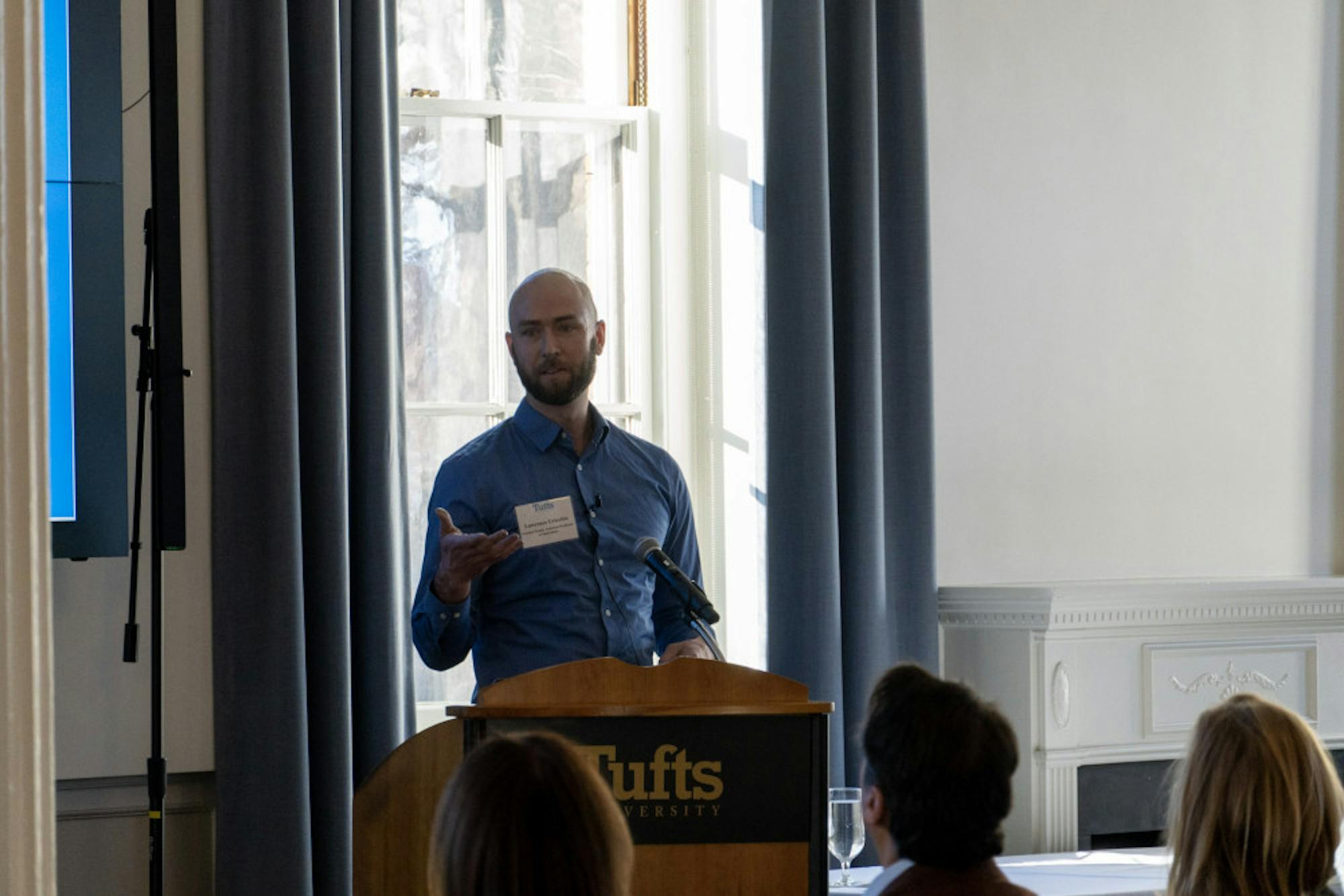University President Anthony Monaco hosted an event in Ballou Hall on Wednesday to present the inaugural Youniss Family Professorship of Innovation to Professor Lawrence Uricchio.
“Lawrence is an assistant professor of biology and population geneticist whose research functions focuses on how species adapt in response to environmental changes," Monaco said. “This is the exact topic of my sabbatical,” Monaco joked.
The endowed junior professorship was founded by Mariann Youniss (LA’83) and Andrew Youniss in 2018 and is dedicated to developing and supporting junior faculty in the hopes that they will become permanent members of the Tufts community through their pursuit of science, technology or mathematics scholarship.
Monaco highlighted the importance of opportunities like the Youniss Professorship for Tufts’ undergraduate and graduate student population.
“Our undergraduates and our graduate students are attracted to Tufts so they can work with these professors on these exciting projects,” he said. “I want to thank, in particular, Mariann and Andy for the tremendous support that [they have] given to this position.”
Uricchio is a population geneticist who explores how species react to their environment. He was bestowed the Youniss Family Professorship in recognition of his extensive experience in fields advancing innovation and societal impact. Additionally, in the spring of 2022, he was awarded the Tufts Springboard Award for his work on disciplinary identity development in computational biology.
Uricchio began his talk by offering the audience an overview of his work, explaining that it was previously assumed that all evolutionary change was very gradual.
“Now of course we know that adaptation and evolutionary change can actually happen quite rapidly,” Uricchio said.
Uricchio worked with bacteria and antibiotics and found that bacteria have the ability to grow despite high concentrations of antibiotics. Uricchio gave an example of evolutionary research from a paper published a few years ago by Dr. Shane Campbell-Staton.
“You may recall, there was this very extreme cold snap in Texas, which had quite severe implications for humans, but even more severe implications for other species, especially [lizards],” Uricchio said. “They sequenced ... these lizards and found that there is genetic variation in their ability to resist this cold snap.”
Uricchio’s lab explores evolution going forward in time, predicting how species are expected to adapt and change. He discussed natural selection in humans, specifically their lactose intolerance or lack thereof.
“One of the strongest signals that we see in the human genome is for this lactase persistence phenotype,” Uricchio said. “This is a phenotype where individuals into adulthood are able to metabolize lactose and it has caused this pretty substantial flexion signature in the human genome.”
After displaying a number of graphs relating to his lab’s research questions, Uricchio ended his presentation by explaining the most recent experiments conducted by his Ph.D. students.
“This lab is collecting [marine intertidal snails] from the coast, maintaining and reproducing them in this lab environment, and then we hope to subject them to various kinds of stress, thermal stress and pH [stress],” he said. “Then we want to sequence those survivors after subjecting them to this stress and ask questions about which genetic variants in the genome might actually affect [humans] on any of these traits of interest.”
Monaco, himself a biologist, expressed great respect for Uricchio’s work.
“We wanted to raise funds to support faculty with endowed professorships,” Monaco said. “We raised funds for 62 such professorships during this [Brighter World] campaign. And their research and scholarship of course, as you will hear, is important for their fields and impact on the wider society.”






